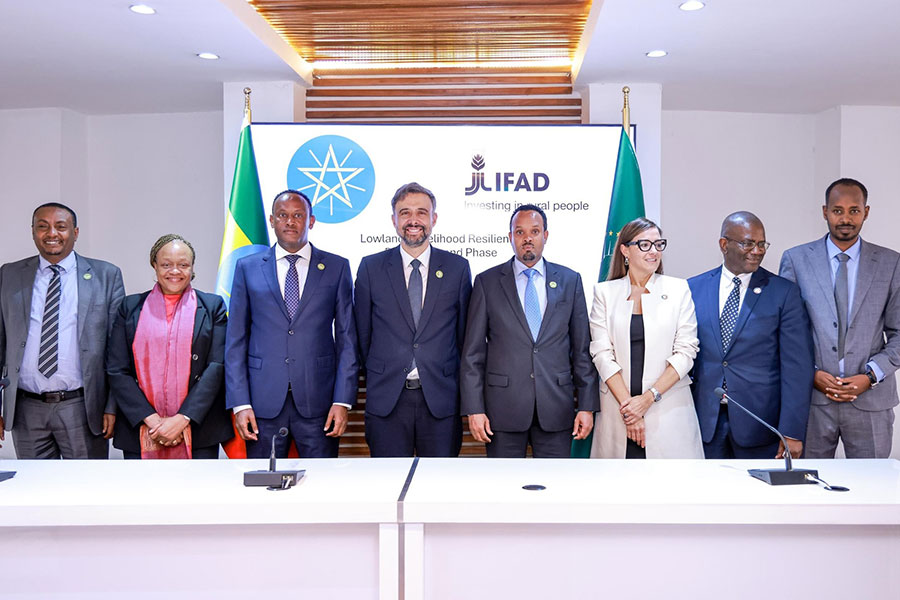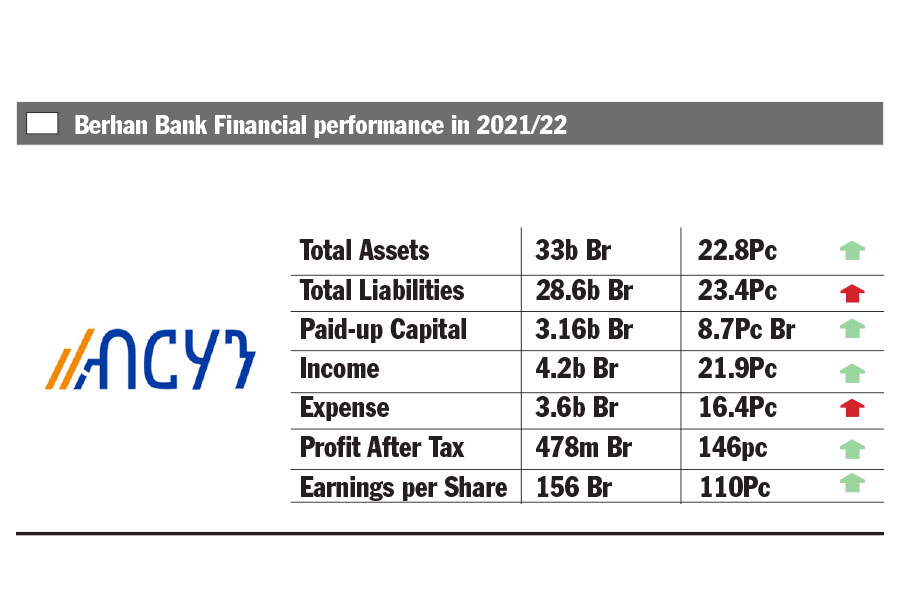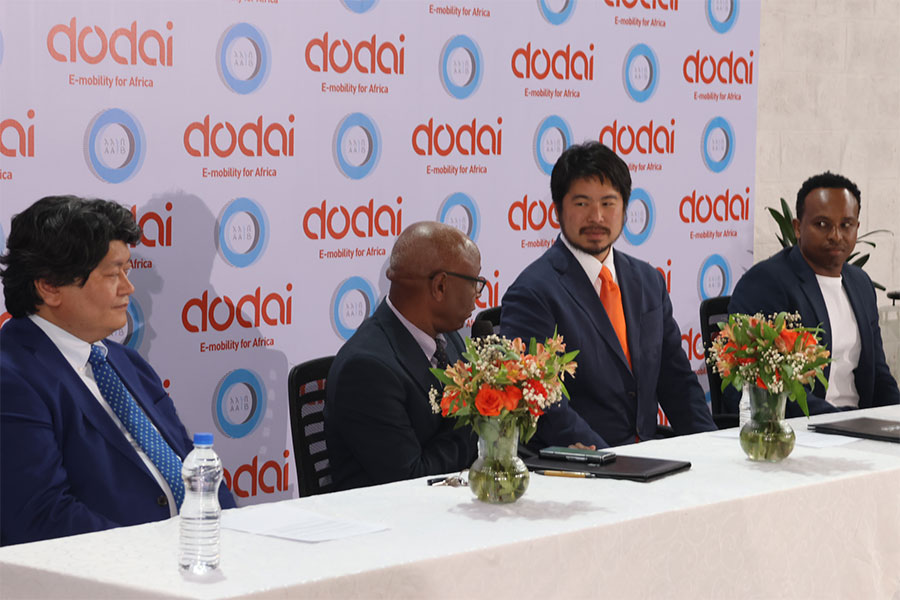
Radar | Aug 12,2023
Aug 12 , 2023
By MUNIR SHEMSU ( FORTUNE STAFF WRITER )
An inspection lab that determines the structural and chemical composition of leather products is slated for commencement after a couple of months.
The lab worth over one million euros is constructed by the United Nations Industrial Development Organisation (UNIDO) at the heart of Mojo Town, Oromia Regional State 64Km from the capital. It was intended to be part of the ambitious Mojo Leather City Project that aimed to integrate the nation's tanneries in one place which has yet to set a footing.
Tamiru Legesse, communications officer at UNIDO, said the facility aims to regulate chemical use with hopes of enhancing the quality of products and considering the health aspects.
He disclosed their plan to give access to the factories in the town as Mojo contributes 60pc of leather production in the country.
Tamiru expects that the facility located inside Mojo Technical & Vocational Education & Training (TVET) Centre will provide significant unburdening in logistics for factories, hinting that students who are prospective participants in the leather industry could gain experience.
Although Ethiopia boasts the continent's largest livestock population, with over 160 million cattle, sheep and goats, the leather industry has not kept pace with the country's leather export earnings dropping by nine per cent last year. Leather and its finished products accounted for only one per cent of the 4.1 billion dollars earned in merchandise exports.
It will be the second largest inspection centre after a facility located in the Leather & Leather Products Industry Research & Development Center (LPIRDC).
The Modjo River is a tributary for the longest nationally bounded river in the country, Awash and has served as a ripe ground for the growth of several leather manufacturers, with 10 being currently operational despite growing domination by foreign companies.
Lele Ghang represents Pelle Leather Manufacturing, a Chinese company producing eight million square feet of processed leather annually.
While he appreciated the establishment of a laboratory near the factory, the poor quality of skins and hides persists as a marking feature of the supply chain. He advises better handling of skins and hides during slaughter and transport.
"Production and quality could be improved with better inputs," he told Fortune.
Pelle was re-established after purchasing Mesaco Plc over eight years ago. It has increased the labour force nearly eight times boasting 450 employees under its fleet. Most of the workers are low-skilled labourers.
From 2010 to 2018, nine Chinese firms established tanneries in Ethiopia, making it the largest investing country in Ethiopia's leather sector.
A paper by the China-Africa initiative under Johns Hopkins University indicates that China's hardening environmental regulations have forced tanneries to move out of the country and conduct their pollutant-rich processing abroad.
Genanaw Asfaw, a leather industry expert with three decades of experience, considers the new lab a helpful hand to the struggling leather industry.
He cites competition from synthetic leather, parasitic skin diseases and poor skin treatment as hurdles faced by the industry.
"Most tanneries are merely surviving," he told Fortune.
He explained that most European countries have limits on the amount of chromium plastics that they allow into the country.
Mentioning that chromium or chrome tanning is the most popular tanning method worldwide, Genanaw explained the carcinogenic effects above certain levels, with many countries worldwide limiting their inflow per product.
However, Ethiopia has no such standards for leather products for the domestic market.
Genanaw argues that despite the peculiar fibrous structure of Ethiopian leather, the decreasing attention given to the sector over the years has led to its underdevelopment. He disapproves of the attitude towards hides as a meat byproduct and not much more.
Other experts within the industry contend that Ethiopia's leather industry has several problems that precede the establishment of a second inspection laboratory.
Kebede Amede, a leather technologist with a career spanning decades, recommends that each large-scale leather producer should have its own laboratory. He indicated that laboratory evaluations should be applied to the nearly 100 chemicals applied on the hides during processing.
The passionate industry insider underscored the importance of fixing the attitude towards animal skin as the lack of quality undermines the growth of exports. Kebede advocates for targeted investment in fixing the supply of raw materials to harvest the nation's naturally endowed potential.
"The sector's performance is on a yearly decline," he said, "no one asks why."
The industry veteran highlighted the importance of laboratory facilities that standardise imported chemicals and create capabilities for domestic production rather than mere quality inspections.
"Most factories are working at half their capacity," he said.
PUBLISHED ON
Aug 12,2023 [ VOL
24 , NO
1215]

Radar | Aug 12,2023

Fortune News | Jan 21,2023

Life Matters | May 31,2025

Radar | Aug 07,2025

Fortune News | Nov 12,2022

Radar | Apr 24,2023

Delicate Number | Aug 16,2025

Radar | Sep 21,2019

Radar | May 31,2025

Life Matters | May 24,2025

Dec 22 , 2024 . By TIZITA SHEWAFERAW
Charged with transforming colossal state-owned enterprises into modern and competitiv...

Aug 18 , 2024 . By AKSAH ITALO
Although predictable Yonas Zerihun's job in the ride-hailing service is not immune to...

Jul 28 , 2024 . By TIZITA SHEWAFERAW
Unhabitual, perhaps too many, Samuel Gebreyohannes, 38, used to occasionally enjoy a couple of beers at breakfast. However, he recently swit...

Jul 13 , 2024 . By AKSAH ITALO
Investors who rely on tractors, trucks, and field vehicles for commuting, transporting commodities, and f...

Oct 18 , 2025
The political establishment, notably the ruling party and its top brass, has become p...

Oct 11 , 2025
Ladislas Farago, a roving Associated Press (AP) correspondent, arrived in Ethiopia in...

Oct 4 , 2025
Eyob Tekalegn (PhD) had been in the Governor's chair for only weeks when, on Septembe...

Sep 27 , 2025
Four years into an experiment with “shock therapy” in education, the national moo...